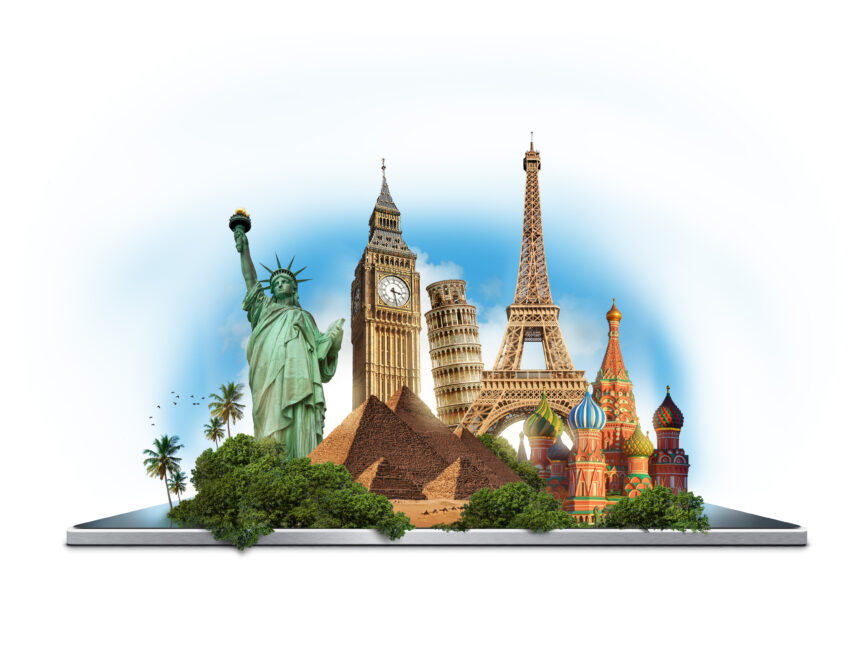The world of digital art and blockchain technology has given rise to a fascinating concept known as non-fungible tokens (NFTs). NFTs have gained immense popularity in recent years, revolutionizing various industries, including art, music, and sports. In the realm of tourism, NFTs have the potential to play a significant role in promoting destinations and preserving cultural heritage. In this article, we explore how NFTs can be utilized to showcase South African landmarks, allowing tourists to experience and own unique digital collectibles.
Understanding NFTs:
Non-fungible tokens are unique digital assets that are indivisible and cannot be replicated. Built on blockchain technology, NFTs provide proof of ownership and authenticity, ensuring the rarity and uniqueness of digital items. Each NFT contains a distinctive set of metadata, which can include details such as the creator, description, and ownership history. These attributes make NFTs ideal for representing digital collectibles like artwork, virtual real estate, and even representations of physical landmarks.
Showcasing South African Landmarks:
South Africa is a country blessed with diverse natural landscapes, vibrant cultures, and iconic landmarks. From the majestic Table Mountain in Cape Town to the awe-inspiring Blyde River Canyon in Mpumalanga, the country boasts an abundance of attractions that capture the imaginations of travelers worldwide. By creating and trading NFTs representing these landmarks, South Africa can leverage the growing NFT market to promote tourism and raise awareness about its rich cultural and natural heritage.
Preserving Cultural Heritage:
One of the key advantages of NFTs is their ability to preserve and promote cultural heritage. South Africa is home to numerous historical sites, ancient rock art, and traditional crafts that are often vulnerable to degradation or loss. By digitizing and minting these cultural treasures as NFTs, they can be immortalized in the blockchain, ensuring their longevity and accessibility to future generations. Tourists and art enthusiasts can own these digital representations, providing a new way to appreciate and support cultural preservation efforts.
Enhancing the Tourist Experience:
NFTs offer tourists a unique and immersive way to engage with South African landmarks. Imagine exploring the vibrant streets of Johannesburg through a virtual reality experience or owning a digital artwork capturing the majestic wildlife of Kruger National Park. NFTs can provide a deeper connection to these destinations, enabling collectors to relive their experiences and share them with others. Additionally, the limited supply and exclusivity of NFTs can create a sense of scarcity, making them highly desirable among collectors and enthusiasts.
Boosting Local Economy:
The adoption of NFTs in the tourism industry can also have a positive economic impact on local communities. By creating and selling NFTs associated with South African landmarks, revenue can be generated to support conservation efforts, infrastructure development, and community-based initiatives. Moreover, NFTs can serve as a new source of income for local artists, photographers, and creatives who can collaborate with tourism organizations to produce captivating digital collectibles.
Challenges and Considerations:
While the potential of NFTs in showcasing South African landmarks is exciting, it is essential to address some challenges. First, ensuring that the creation and distribution of NFTs align with ethical and sustainable practices is crucial. Additionally, issues surrounding environmental concerns related to the energy consumption of blockchain networks must be taken into account.
Conclusion:
NFTs offer an innovative and engaging way to promote South African landmarks and preserve the country’s cultural heritage. By leveraging blockchain technology, these digital collectibles can enhance the tourist experience, generate revenue for local communities, and create a lasting connection between tourists and the captivating destinations of South Africa. As the world evolves, the integration of NFTs into the tourism industry holds immense potential, allowing visitors to own a piece of South Africa’s beauty and history in the form of unique and valuable digital assets.










